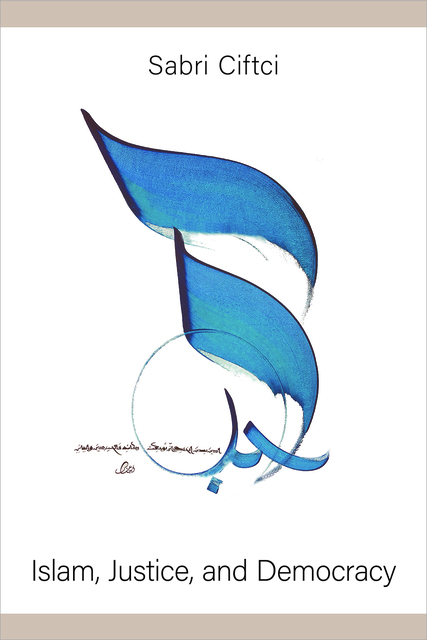Islam, Justice, and Democracy
Included in the KU Select 2022 Humanities and Social Science Frontlist Collection.
Justice (al-‘adl) is one of the principal values of the Islamic faith. In Islam, Justice, and Democracy, Sabri Ciftci explores the historical, philosophical, and empirical foundations of justice to examine how religious values relate to Muslim political preferences and behavior. He focuses on Muslim agency and democracy to explain how ordinary Muslims use the conceptions of divine justice—either servitude to God or exercising free will against oppressors—to make sense of real-world problems.
Using ethnographic research, interviews, and public opinion surveys as well as the works of Islamist ideologues, archives of Islamist journals, and other sources, Ciftci shows that building contemporary incarnations of Islamist justice is, in essence, a highly practical political project that has formative effects on Muslim political attitudes. Islam, Justice, and Democracy compares the recent Arab Spring protests to the constitutionalist movements of the nineteenth and twentieth centuries in the Middle East to demonstrate the continuities and rifts a century apart.
By putting justice at the center of democratic thinking in the Muslim world, Ciftci reconsiders Islam's potential in engendering both democratic ideals and authoritarian preferences.
Metadata
- isbn978-14399-2151-7
- publisherTemple University Press
- publisher placePhiladelphia, PA
- restrictionsCC-BY-NC-ND
- rightsCopyright 2022. Available under a CC-BY-NC-ND 4.0 license.
- rights holderTemple University Press
- series titleReligious Engagement in Democratic Politics


